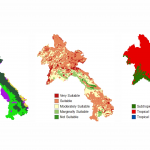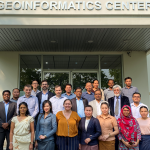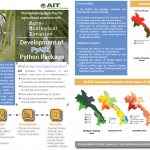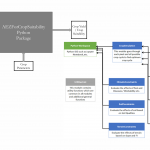Development of an Agro-Ecological Zoning (AEZ) Modules and Routines and Support for Capacity Development
Agro-Ecological Zonation (AEZ) refers to productions of maps that represent suitability of land for a given area. Under this project, GIC-AIT contributed to the development of Python package that allow users to conduct AEZ assessment in user friendly manner. This project has been developed within the framework of an activity of the FAO Regional Office for Asia and the Pacific titled “Capacity Building for Agro-Ecological Zone (AEZ) Mapping and Modelling to Project Climate Suitability of Crops and Land Uses”. The project outputs also contributed to work being implemented under the project GCP/LAO/021/LCF in Lao PDR (SAMIS). Furthermore, the project activities were aligning with the Regional Initiative on Climate Change and its 3rd main area of work: “Strengthen regionally applicable tools, guidance and partnerships for transformative resilience and climate-smart agriculture (leading to FAO regional leadership in knowledge sharing and partnership building)”.
Main activity of the project was development of the PyAEZ package which was published as open-source software. PyAEZ is a python package consisted of many algorithms related to AEZ framework. PyAEZ tries to encapsulate all complex calculations in AEZ and try to provide user friendly and intuitive ways to input data and output results after calculations. PyAEZ includes 6 main modules:
- Module I: Climate Regime
- Module II: Crop Simulations
- Module III: Climate Constraints
- Module IV: Soil Constraints
- Module V: Terrain Constraints
- Module VI: Economical Suitability Analysis
In addition, UtilityCalculations module is also included in PyAEZ to perform related utility calculations. Other than those modules, 3 major AEZ-related algorithms (biomass, evapotranspiration, and CropWat calculations) are also included in PyAEZ as separate modules.
Capacity building activities was also an integral part of the project. Two main capacity building activities were carried out during the project period, to share the details of AEZ methodology for crop suitability assessment, including theoretical aspects as well as case studies, and the status of AEZ python routines development.





